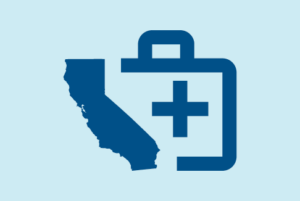In these final few days of the 2021 legislative session, with all political eyes on the Sept. 14 recall election of Gov. Gavin Newsom, there is mixed news on two issues of great importance to hospitals.
Both CHA’s proposed 2030 seismic mandate reform and the governor’s Office of Health Care Affordability will not be advancing this year.
Seismic Mandate Reform
The proposal to modernize disaster readiness requirements by updating the 2030 seismic standards is ultimately about bringing much-needed relief to hospitals that continue to go above and beyond during this pandemic. The need for that relief does not disappear with the change of a calendar date.
We will continue to press for seismic reform in the coming year. Given all the groundwork that has been laid — including an agreement with the Office of Statewide Health Planning and Development and the administration on a reformed standard, hundreds of conversations with legislators and their staffs, and an unprecedented effort on the part of hospital leaders throughout the state to educate policymakers on the need for their support — our work to secure this proposal’s path forward will continue.
Office of Health Care Affordability
The office would have created limits on the rate of increase in health spending in California, and the CHA team spent countless hours working to address concerns and issues with the proposal, including accounting for the extraordinary cost of the 2030 seismic mandate. This bill will return next year.
Among the key amendments that CHA has and will continue to fight for when this returns next year:
- All health care entities, including payers, must be held accountable for health care spending growth targets.
- Any calculations of growth targets must factor all input costs, including labor.
- The office should focus on reducing the rate of growth in per capita expenditures, not cut current spending levels.
- Before any financial penalties can be assessed, the office must take into account the impact on access, quality, and a health care entity’s financial stability.
The news of these bills being delayed comes at a time when hospitals are once again in the throes of a relentless cycle of COVID-19 surges that continues to stretch your workforce and resources to care for patients to their breaking points.
We continue to drive this point home with the governor’s COVID-19 team and reinforce for all involved that when it comes to providing help for hospitals — both in the short-term as we navigate surge after surge and the long-term as we begin to rebuild our fractured system — politics must, in no uncertain terms, take a back seat to meeting the needs of the people of California.

